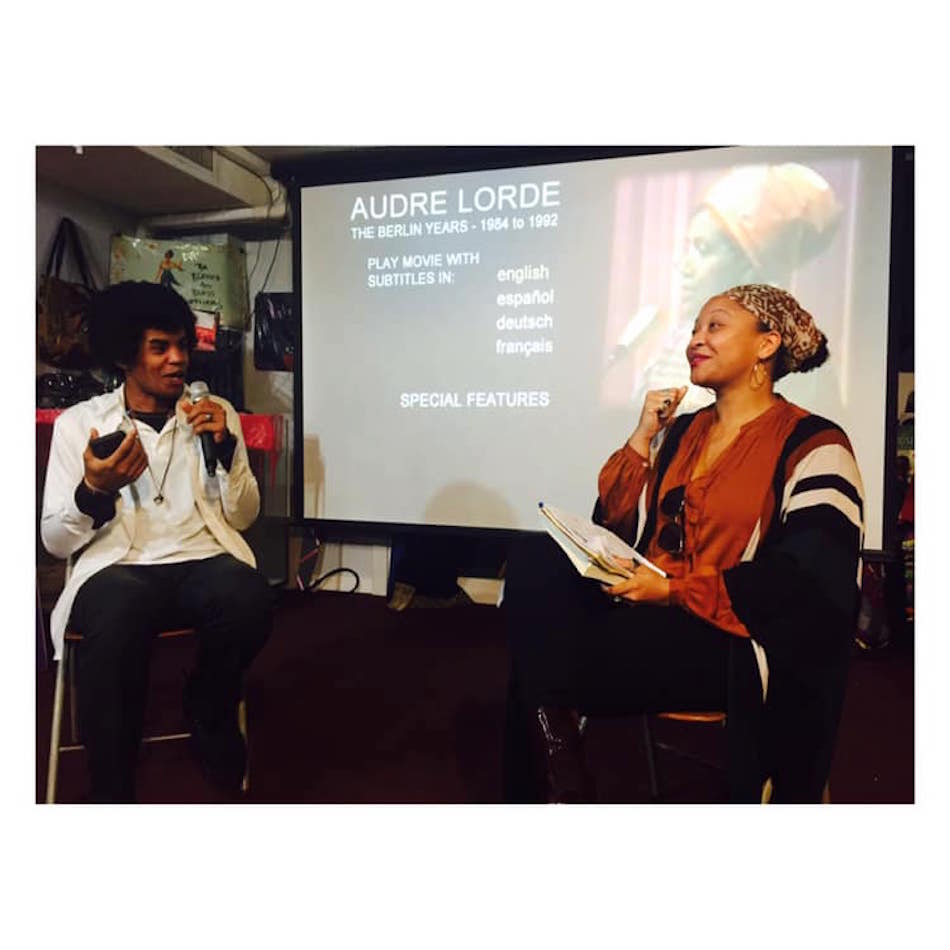Jaimee Swift ‘13 has enjoyed storytelling since her childhood. Though the focus of her stories may have evolved, her enthusiasm for sharing them has never changed. As a PhD candidate at Howard University in Washington, D.C., she has officially launched Black Women Radicals (BWR), an organization promoting Black feminist advocacy that recounts the lives and work of Black women, Black non-binary and Black gender non-conforming activists. She sees an opportunity for the organization — which consists of the Black Women Radicals Database, the Voices in Movement blog and community conversations — to contribute to closing the gap in activist history not only for the sake of accuracy but also to illuminate narratives that have rarely been told before.
Swift attended Temple University as an undergraduate student of communication. She found that Temple was the ideal location to get her familiar with city living and being around a majority Black population. The history, culture and events of and around Philadelphia helped inform Swift’s writing. At the same time, she got a chance to publish her writing while serving as the president and editor-in-chief of Her Campus Temple, an online feminist magazine with chapters for schools around the country. She also had an internship with NBC Universal.
“I realized when I went to Temple that words have power, words have meaning,” Swift says. “There’s this great statement that a writer by the name of Toni Cade Bambara has said and has always stayed with me, that words can conjure...words have electricity.”
Swift started a master’s program at Howard in political science after graduating, but continued writing and developing her voice. After completing the program, she became a contributing writer to several media outlets including HuffPost, Salon.com and OkayAfrica all while participating in a year-long global health fellowship. She started as a political science doctoral candidate in 2016 researching Black feminist politics in Salvador da Bahia, Brazil. In 2017, she continued freelance writing while also publishing written accounts of issues and events significant to Black people around the world with the African American Intellectual History Society.
But 2018 was the year she began Black Women Radicals, her most extensive personal project yet. She conceived of the idea as she was doing research for her dissertation and found herself becoming frustrated that she did not know of the many Black women activists whose theories and actions influenced her area of study. She spent a year quietly building a social media following for BWR, and found that people were ready to learn more about the contributions of activists who reflected their identities and values. Hardly anyone knew she was the person behind the social media accounts, nor did they know that sheran the organization by herself — and, except for assistance from the organization’s graphic designer Keshia White, still does.
“This was a project birthed out of a void, of what I felt as a void,” Swift says. “Even in 2018 when I first conceptualized it, it was birthed out of this void. And so my concern and my purpose and my mission is led by, how do we get to know who these Black women, gender non-conforming and non-binary activists are? And how can we learn about them in a more holistic, political, social way?”
At the same time, her mother Aretha Swift was preparing for a second kidney transplant. Aretha admired the way her daughter balanced her stellar academic record, her creative endeavors and her family life.
“Even though she worked very hard in school, she still remained the ideal daughter by taking time to take care of me and being very attentive,” she says. “All three of [my children] did but she really remained in that. And even to this day, even being in the D.C.- Maryland area, she’s still the same way.”
Swift’s younger sister Alainna Swift, a freshman in the Tyler School of Art and Architecture at Temple, feels that BWR is a reflection not only of her sister’s talents but of her character.
“I feel like her page and Black Women Radicals is really what she stands for and it really is like an actual reflection of her,” Alainna Swift says. “And that’s why it’s been really successful and it will be more successful.”
So far, BWR has made an impression around the world. Its official launch, which introduced its website and initiatives, took place in October of last year. Due to Swift’s efforts, BWR has a database of Black women radicals from across the diaspora containing information about dozens of activists; its blog boasts interviews with renowned changemakers such as Barbara Smith and Denise Oliver-Velez; and it has hosted three community conversations with D.C.- based nonprofit The Outrage, which educated and celebrated local and internationally-recognized Black women activists, with more events on the way. Additionally, the organization has amassed over 21,000 followers on Instagram and over 28,000 followers on Twitter.
“I don’t wanna equate success to numbers or social media followings because it’s not that,” Swift says. “It shows how thirsty people are to want to know and understand and to interrogate how Black women have contributed to social movements, to politics, to education, to culture, to all sorts of facets of our society.”
But Swift does not think that the activists featured in the BWR database are the only Black women radicals: in fact, she considers many Black women like her mother to be radicals, too. She wants the Black women who discover BWR to feel like they can make just as much of an impact as the activists the organization highlights.
“I hope that [BWR] can continue to build community, solidarity and just dialogue with one another because this is what this is all about,” Swift says. “It’s not focused on the individual but about community.”

